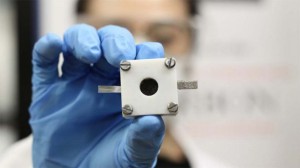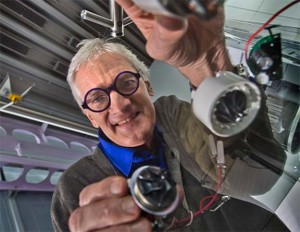Not wanting to be left out of the electric vehicle spotlight for too long, vacuum cleaner guru Sir James Dyson revealed he’s planning to set up a test track for his in-development electric vehicle.
The 10-mile track, which is part of a larger $150 million “campus,” is slated to be built on the site of a World War II-era airfield in western England.
Dyson announced last year that he’s developing an electric car that should hit the road in 2020 or 2021. He’s counting on his company’s expertise in the production of innovative vacuum cleaners, bladeless fans, air purifiers and other appliances to translate to an electric vehicle.
“We are now firmly focused on the next stage of our automotive project, strengthening our credentials as a global research and development organization,” Dyson said after turning the plans for the development of the race track.
(Dyson’s EV efforts following a familiar path. Click Here for the story.)

A new solid state battery cell offers a wealth of advantages over the current lithium ion technology.
The company has a 400-member team of engineers working on the car project in Malmesbury, Wiltshire, and that is expected to jump by another 300 people in short order. The long-term plan calls for a complex with more than 2,000 people.
“Our growing automotive team is now working from Dyson’s state-of-the-art hangars at Hullavington Airfield,” Chief Executive Officer Jim Rowan said in the statement. “We are now firmly focused on the next stage of our automotive project strengthening our credentials.”
(Click Here for more about the push for solid-state batteries.)
No drawings or designs have been revealed, but there is already one difference between the Dyson EV and the rest of the pack led by Tesla, General Motors, et al, the Dyson will use solid-state batteries instead of lithium ion, which is the current standard. The company says solid-state batteries are smaller and more efficient. Toyota’s engineering team is also working on solid-state batteries for its EVs with a goal of having them available after 2020.
Dyson is looking to take its existing knowledge of solid-state batteries, which is uses for some of its cordless products and ramp that up for an electric vehicle application. It also uses plenty of high-speed electric motors, which will be critical to the success of its EV.
(To see how mass EV charging could cause problems, Click Here.)
The limited-edition model, which will be about 10,000 units, will be premium-priced vehicle, although not a sports, Dyson said earlier this year. It will essentially provide the company with a blueprint for how to make the other two models, according to Financial Times.

